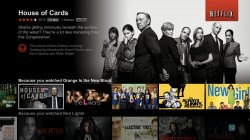Weekly News Roundup (10 July 2016)
It’s either a birthday present, or a birthday curse, but following the wild seventeenth birthday celebrations here at Digital Digest HQ, this following week has been incredibly boring, news wise. It’s definitely something, because just as the week ended, the news started flooding in and next week already looks like a really busy one.
So as a result, we barely have any stories to cover in this WNR, which is just as well, as I’m not really in the mood to write too much (still nursing a slight cough, and you know, Sunday). Let’s get on with it then.
![]()
It seems we have finally found a reasonable solution, or compromise depending on where you stand, to the online piracy problem. Or more precisely, something that actually works in helping to reduce piracy. It’s not DRM, and it’s definitely not new laws, but something rather simple – choice! An official report from the UK body responsible for tackling the piracy problem, the Intellectual Property Office, has found that legal streaming services like Spotify and Netflix have helped to greatly reduce online piracy. Dropping 18% in just a year, 44% of users surveyed for the report now only use legal means to get their content, and a whopping 80% of music listeners now rely solely on legal options.
This is in stark contrast with just a couple of years ago, when nobody wanted to pay for music, and they mostly didn’t thanks to the likes of LimeWire, MP3 download sites and BitTorrent.
I think a couple of things are responsible for this changing consumer behaviour. I think for starters, people have finally felt natural to pay for digital content, whereas in the early days of the “Wild West” Internet, digital usually meant free. Secondly, the removal of DRM from digital purchases and the increasing use of the cloud has meant that you can now buy once and play it everywhere, and you no longer have the feeling that you had to buy the same content multiple times just so you can enjoy it in a way you want – this increases both value and usability. Now, this point applies mainly to music right now, as for video content, DRM and lack of interoperability is still a major issue.
Thirdly, and this was the crux of the Intellectual Property Office report, the increasing popularity of a new way to consume content has helped to greatly increase the value proposition for consumers, and hence, decrease their need for piracy. Of course, I’m talking about streaming, and it’s here, that the greatest impact on piracy has occurred, for music and, in a greater degree, for TV/movie content. Subscription streaming gives you access to enormous amount of content, something that no normal person would ever be able to afford if they went down the purchase route (either physical or digital). Again, increasing value and usability has made paying better than free.
And on the piracy reduction side (but perhaps not directly translating into increasing revenue), the emergence of more free options for content (such as YouTube, for music videos, Spotify for ad-supported listening, and free catch-up services from major TV networks) has allowed legal options to be competitive with piracy. I know content holders don’t like to be put into a position where they have to compete with piracy, but that’s the reality of the situation and ignoring reality has never been a good idea. If for nothing else, having free content help consumers develop a habit of relying on legal options, and this can be important when people have to make a decision to pay for not pay for something later on.
Some to sum up, making legal better is much more productive than trying to make illegal harder (or more legally dangerous), because the sad truth is that piracy will always be pretty easy, even with DRM, and as long as people feel justified in pirating content (because the legal alternative is just too difficult, or too expensive), they will be willing to disregard the law, rightly or wrongly.
——
And that turned out to be more of an op-ed than a news roundup, but you make do with what you have, and we didn’t have much this week. Things will be different next week, I promise. Until then, have a great one!


